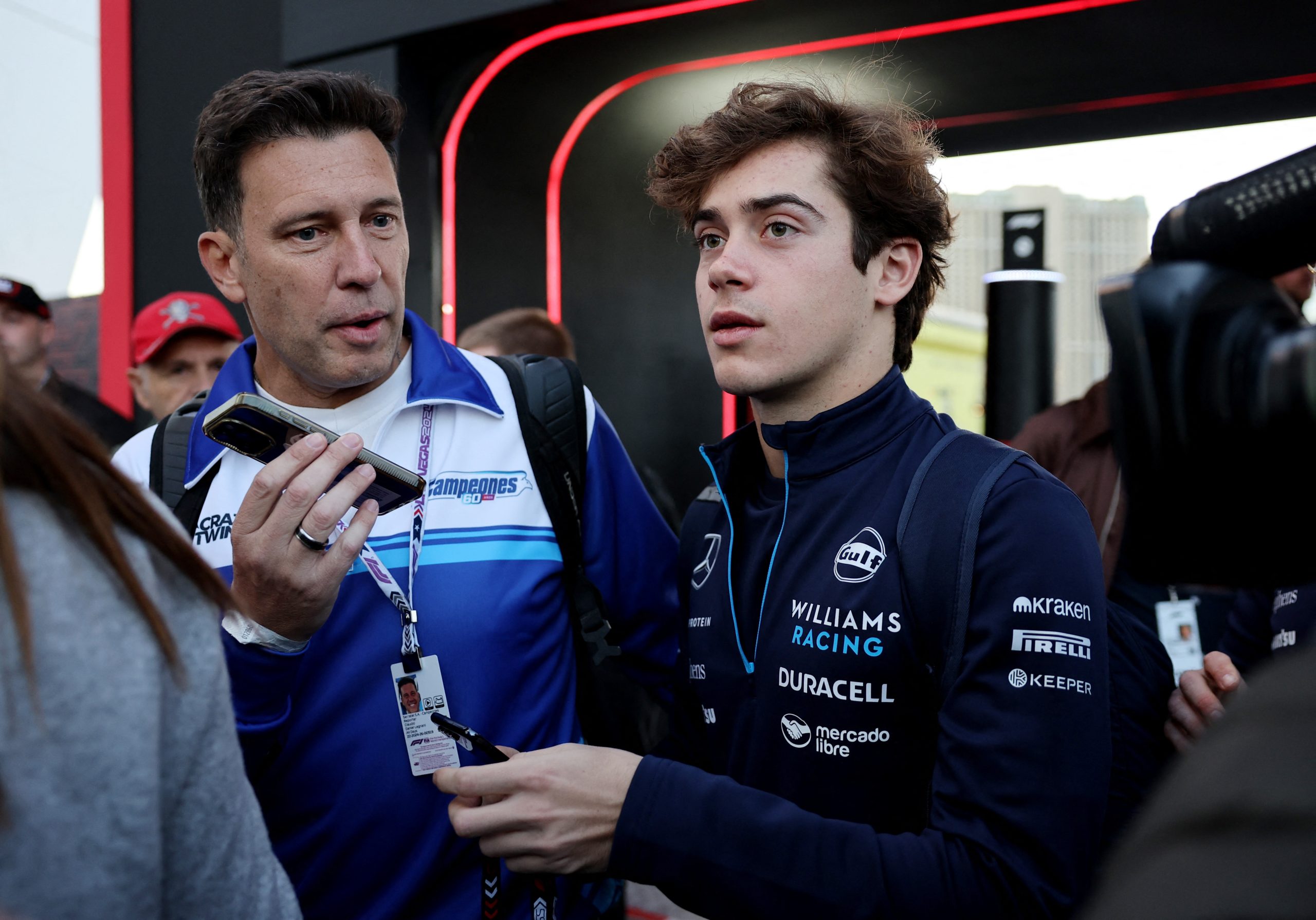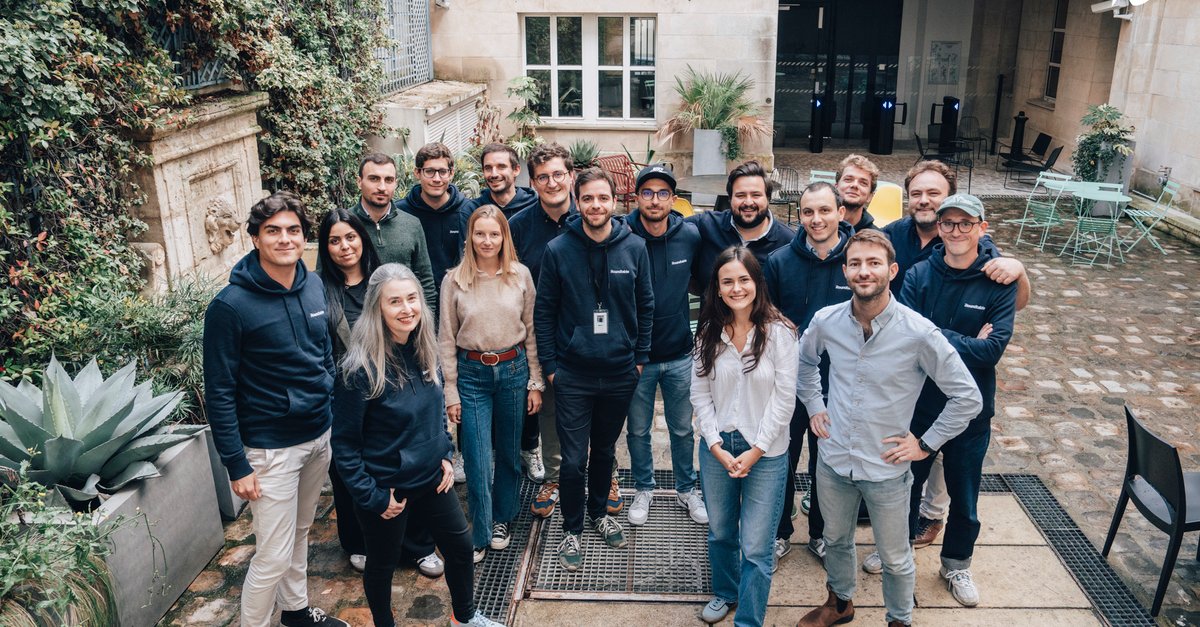Table of Contents
- 0.1 “I deleted Twitter; It’s too toxic”
- 0.2 Hamilton’s powerful message to the next generation
- 0.3 The Pressure of Public Errors
- 0.4 A New Approach to the F1 Projector
- 1 **How can F1 teams and the FIA better support athletes in navigating the intense scrutiny and potential toxicity they face on social media, considering Franco Colapinto’s decision to step back?**
The rising star of Formula 1 Franco Colapinto made a striking decision to distance itself from social media, citing its “toxic” nature — a move that reflects concerns raised by Lewis Hamilton regarding the challenges faced by young pilots in the digital age.
The 21-year-old Argentinian, who enjoyed a meteoric rise after joining Williams during the season, finds himself at the center of intense media and fan scrutiny. With more than four million followers on Instagram and a near-cult following in South America, Colapinto is adjusting to his new life as a sporting sensation — a stardom usually reserved for legends like Lionel Messi.
“I deleted Twitter; It’s too toxic”
During the Las Vegas Grand Prix, Colapinto spoke about his decision to quit X (formerly Twitter) and his efforts to protect himself from the incessant pressures of social networks.
“Well, that’s a very strange thing. I deleted Twitter because I think it’s very toxic. No matter what you do, it has a very big impact,” said Colapinto. “The fans hear about every little thing you do. This helps not to get distracted, because it’s not very useful. »
The Williams rookie recognized the darker side of instant global connectivity:
“It’s very easy for people to go online and start spreading…not-so-nice things. But it’s part of the job, and you have to understand that. »
Hamilton’s powerful message to the next generation
Days after Colapinto’s frank admission, Lewis Hamilton shared his own concerns about the toll social media can have on young drivers. The seven-time world champion has issued a stark warning to newbies entering the high-stakes world of Formula 1.
“Don’t let negativity get to you because people are so negative these days, judging you all the time,” Hamilton said. “Stay away from social media and keep your family and closest friends close to you because they are your only true friends when times get tough. »
Hamilton, reflecting on his own experience as a young driver, emphasized the importance of boundaries and self-protection:
“When I was 22 and thrown in at the deep end, I was trying to be nice, but people would take advantage of you. Ask lots of questions, take your time, and don’t let anyone dictate everything you do. »
The Pressure of Public Errors
Hamilton also highlighted the amplified pressure young drivers experience when mistakes happen in the public spotlight.
“It’s about not putting them down when they make mistakes. When you make mistakes in the spotlight, it’s really difficult. We must support and encourage them. »
The Mercedes driver believes a strong support system is essential for young athletes navigating through the pressures of fame and criticism.
“If I had a young driver, I would put a lot of support around him so that social media couldn’t affect him. People can be brutal online, and it’s about making sure that doesn’t put him out of contention. »
A New Approach to the F1 Projector
Colapinto’s decision to move away from the toxicity of social media is a rare but significant choice in a sport where drivers are often encouraged to maintain a digital presence. Combined with Hamilton’s insightful advice, this highlights a growing awareness of the psychological toll that fame, social media and the public eye can have on athletes.
As Colapinto continues to navigate his burgeoning career, his approach could serve as a model for young drivers grappling with the crushing expectations of the modern Formula 1 landscape.
## World Today News: Navigating Fame in the Digital Age: A Conversation with Franco Colapinto and Experts
**Introduction:**
Welcome to World Today News. Today, we delve into the pressures faced by young athletes in the digital age, particularly in the high-octane world of Formula 1. We have a very special guest, rising F1 star Franco Colapinto, who recently made headlines by stepping back from social media, citing its toxic nature. Joining him is [Name], a sports psychologist specializing in athlete well-being, and [Name], a motorsport journalist with extensive experience covering Formula 1. Let’s delve into this important conversation.
**Section 1: The Toxicity of Social Media**
* ** Franco, you’ve spoken candidly about deleting Twitter due to its toxicity. What specific experiences led to this decision?**
* **[Sports Psychologist] What are the common psychological effects of online negativity on young athletes, especially those in the intense spotlight of Formula 1? How does this compare to other professions?**
* **[Motorsport Journalist] Is there a culture of silence surrounding the negative impacts of social media in F1? How can teams and institutions better support drivers in navigating this landscape?**
**Section 2: The Power of Support Systems**
* **Franco, how has your support system – family, friends, team – helped you cope with the pressures of fame and social media scrutiny?**
* **[Sports Psychologist] Lewis Hamilton emphasized the importance of a strong support system. What specific strategies can help athletes build and maintain these crucial connections?**
* **[Motorsport Journalist] Does F1 adequately address the mental health needs of its drivers? What role should teams, the FIA, and the media play in safeguarding athletes’ well-being?**
**Section 3: Learning From Mistakes**
* **[Motorsport Journalist] Lewis Hamilton spoke about the importance of supporting young drivers when they make mistakes in the public eye. What are some constructive ways to handle public scrutiny and learn from setbacks?**
* **[Sports Psychologist] How can athletes develop resilience and coping mechanisms to navigate criticism and maintain a positive self-image in the face of public scrutiny?**
* **Franco, what advice would you give to other young athletes entering the world of professional motorsport?**
**Section 4: The Future of F1 in the Digital Age**
* **Franco, do you see yourself returning to social media in the future? If so, under what conditions?**
* **[Sports Psychologist] How can F1 and other sports organizations adapt to the evolving digital landscape and create a healthier online environment for athletes?**
* **[Motorsport Journalist] Do you think Franco’s decision to distance himself from social media will spark a wider conversation about its role in Formula 1?**
**Conclusion:**
Thank you, Franco, [Sports Psychologist], and [Motorsport Journalist] for this insightful discussion. Your perspectives shed light on the complex challenges faced by young athletes in today’s digital age. As Formula 1 continues to evolve, prioritizing athlete well-being and fostering a more supportive online environment will be crucial for the sport’s future success.


